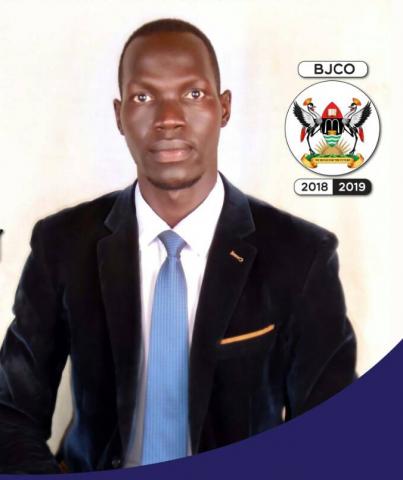Deadline for News Writing Class Looms, Some Students Protest
Submitted by wakaija on

Moses Balok, the President of the School of Languages, Literature and Communication (SLLC), is among Second Year journalism students who say setting deadlines for the News Writing course is unnecessary.
Tutors for News Reporting, Writing and Production I (JCO 2103) have set November 30 as deadline for receiving stories from students. The course is assessed progressively and each student is expected to publish a minimum of eight stories on an online news platform set up by the Department of Journalism and Communication.
And Balok, commonly known as Black, is leading the chorus of those who have expressed disappointment in the set deadline for handing in news stories.
Black says that the set deadline of 30th November 2018 is uncalled for, especially when students are busy with other examinations. End of Semester One examinations began on November 19. Besides JCO 2103, students in Year Two will be examined in four other course units. For those with failed papers from the previous academic year, the number of course units to be examined is higher.
"I'm bitter with the decision of setting a deadline for JCO 2103. The timing of this deadline is wrong since this is the time most students are reading for end of semester examinations," Black told Journalism@Mak.
Black added that JCO 2103 is a practical paper, therefore, setting a deadline means that it was taught to enhance students pass exams and not to develop the students' writing skills.
Black argues that students should be given time to continue writing news stories even during holidays. He is of the view that the lecturers in charge rethink their decision.
He added: "It is not also fair that marks should be allocated to only stories that are published at Journalism@Mak. Many students have tried writing news stories only for the stories to be returned to them. A retake is not the best solution." Stories that fail the test on such aspects as focus, sourcing and context are returned to the writers for improvement. For instance, a story should have at least three sources.
Atiang Grace, another student of Journalism and Communication, agrees with Black. She said: “Advising me to retake a paper after all the stories I have written and they have been sent back to me does not help me develop the writing skill but rather adding me time to continue writing would. It would even be less discouraging.”
Kiyimba Reagan, a student on the evening programme, has already published the required number of stories, but he continues to write. He also supports the idea of students continuing to write after November 30. “Allowing students to continue writing news stories even during holidays is a good idea to even some of us who have completed the task. It will help us improve on our writing skills and replace the badly written stories with better ones.”
But John Okeya, another student who has hit the target, has a different view. “The suggestion is unfair to students who have completed this assignment in time. We were all given equal time, giving a certain number of students a privilege of more time would not be rational,” said Okeya.
- 752 reads
